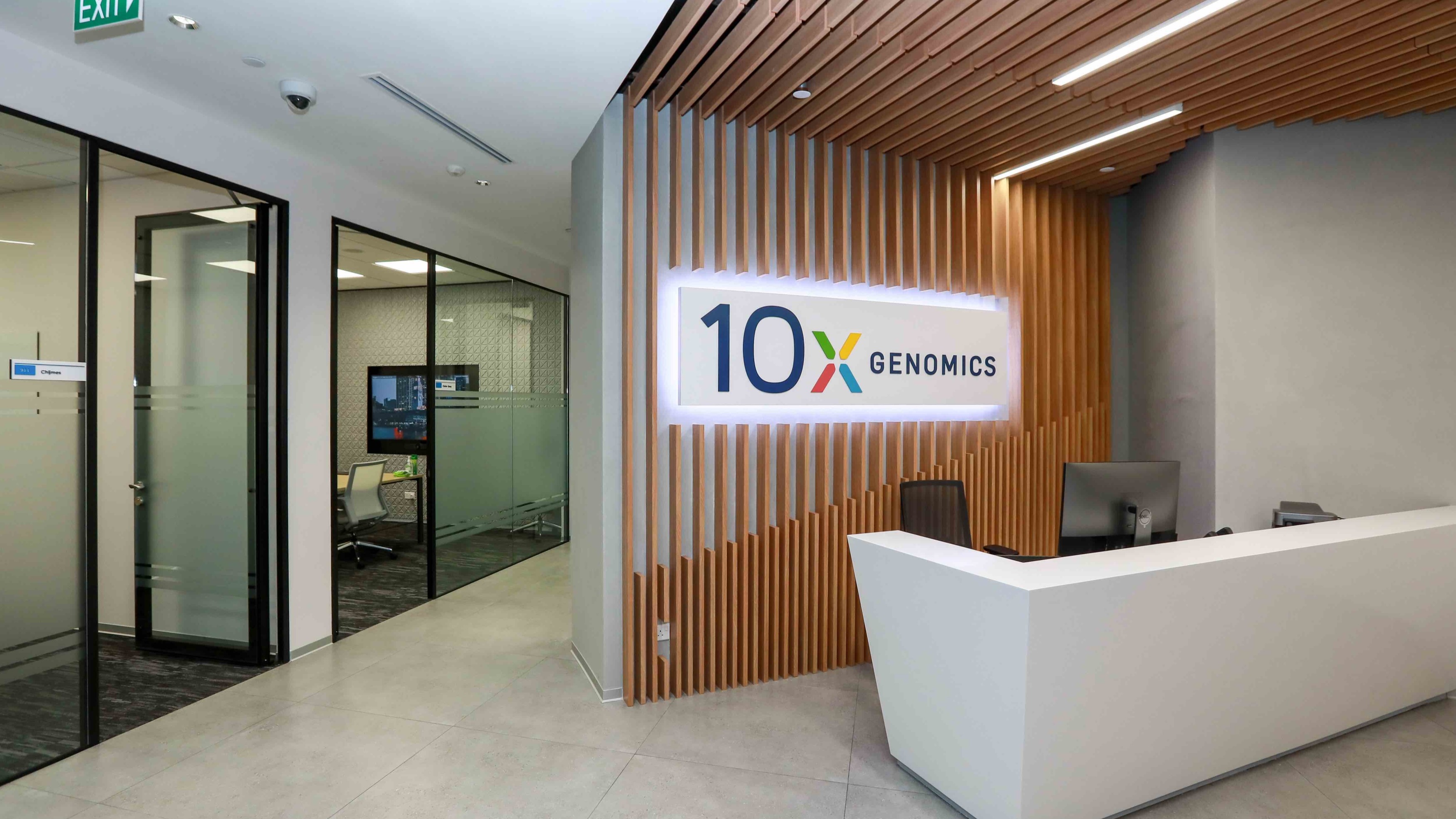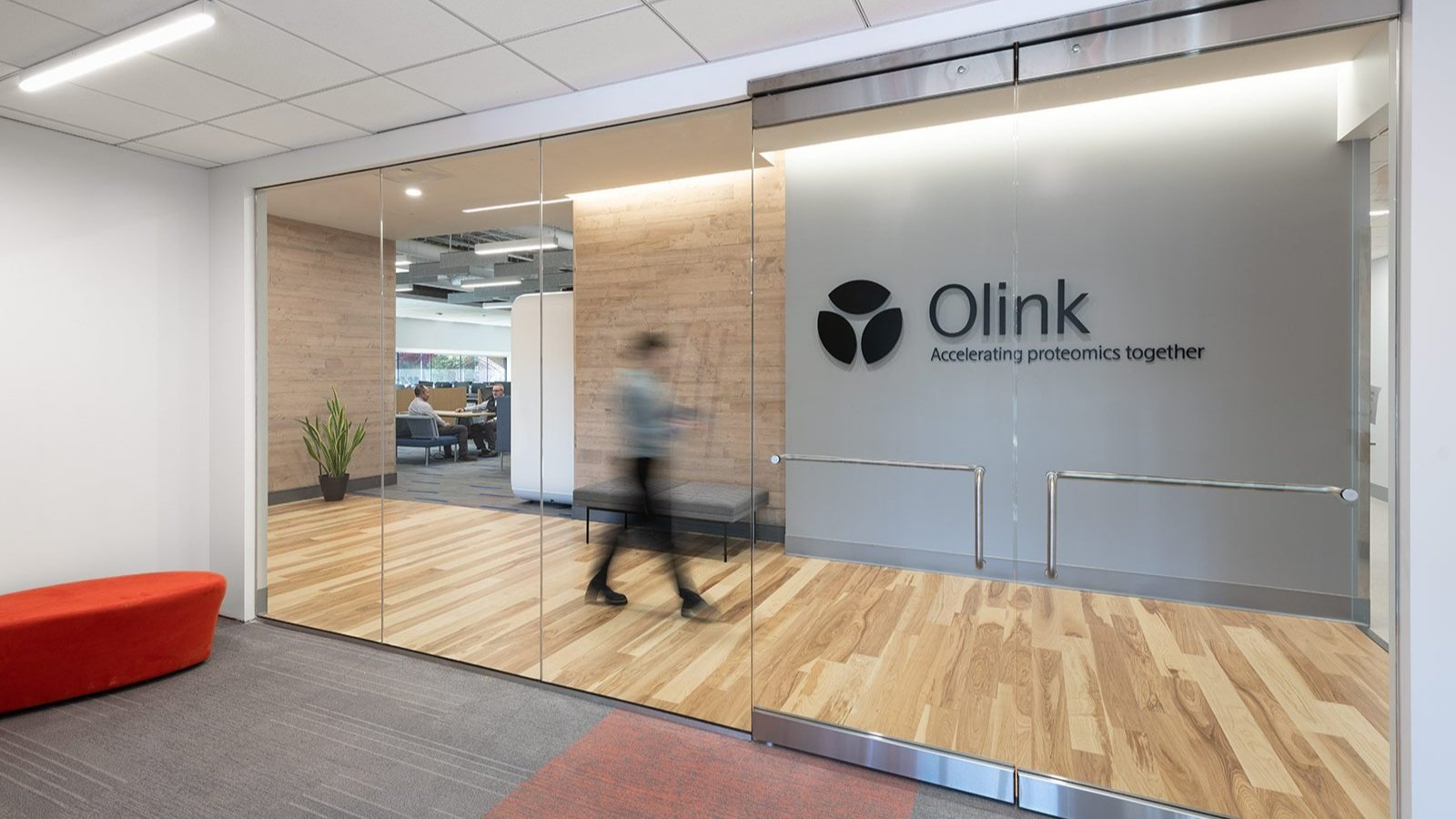It is estimated that 1% of the world’s population has an autism spectrum disorder, yet 80% of people in this group remain unemployed. What’s perhaps more shocking is that 79% of those affected who aren’t in employment would like to be.

The benefits of autistic employees and a more neurodiverse workforce are manifold – new perceptions, sharp focus, high attention to detail – yet the vast majority of businesses lack the awareness and necessary support to accommodate autistic employees.
Tech giants Microsoft and SAP are paving the way in adjusting their hiring processes and putting the support measures in place for those with learning difficulties, and they are more than reaping the benefits. But what exactly are the advantages? And how easy it is for businesses to accommodate those on the spectrum?
Is the Corporate World Anti-Autism? The Lack of Neurodiversity in Businesses
Autism disorders are characterized, in varying degrees, by difficulties in social interaction, verbal and nonverbal communication and repetitive behaviours. It’s estimated that in the UK, just over 1 in 100 people are on the autistic spectrum, which is more than 700,000. In the US, the total number is 3.5 million.
According to research by the National Autistic Society (NAS) only 16% of autistic adults in the UK are in full-time work, a figure that has remained static since 2007. 4 in 10 autistic people say they have never worked at all.
What’s more, around half of autistic people who have had some form of paid employment reported workplace bullying or harassment. Over a third have also said the support or adjustments made by their employer was ‘poor’ or ‘very poor’.
Recruitment processes themselves are fundamentally social, built on candidates’ ability to speak comfortably and confidently about their skills and experience, meaning most autistic adults fall at the first hurdle despite the desire and the ability to fit into the world of work.
The Business Case for Autistic Employees
In the workplace, autism is still something of a taboo subject, despite the fact that many people with autism are highly skilled, qualified and extremely employable, just in need of the right support, planning and opportunities from employers.

Neurodiversity can be a huge advantage for companies; a new perspective will solve problems differently and approach tasks from a new standpoint. Detail-oriented and technically adept, autistic people demonstrate a high level of accuracy in their work and close attention to detail. They also often have strong traits of conscientiousness and persistence. Long processes with high levels of detail are therefore well suited to an autistic mind and, in this way, many autistic individuals have even proven to be at a competitive advantage.
What Adjustments to Hiring Need to be Made?
Despite the overwhelming capability to succeed in the workplace, numerous barriers lie in the way for autistic people when it comes to entering the world of work. For one, they face an immediate disadvantage in an entirely social interview process; their own difficulties with social communication and interaction get in the way and they often struggle to ‘sell themselves’ to the same degree as their non-autistic competitors.
Something as simple as the job description can therefore put off autistic candidates. For non-client facing and independent roles, qualities such as 'excellent communication skills' or 'good team player' are often still included as default skills, even if they are not necessary. Many autistic people will not apply for jobs demanding these attributes.
Making reasonable adjustments during an interview is essential to allowing autistic candidates to portray their skills and competencies fully, so that you can make an informed choice about who to recruit. For one, relaxing the conversation by hosting it in a coffee shop or a café as opposed to a board room can make a substantial difference. Alternatively, allowing a supporter into the interview room with them – to help fill in any gaps or even just to ease their nerves – can make a key difference. Even pre-arranging which lighting and sound arrangements will be least distracting or imposing, facilitates an easier, fairer interview.

One way companies are evolving the interview process – which also allows you and your company to see the full potential of an interviewee – is through work ‘trials’. By conducting an interview over a week or so, and in the format of the job itself – the candidate is better able to demonstrate their skills and you can gauge a stronger understanding of their full capability.
It is important to realise that asking each applicant exactly the same question does not always equate to equality of opportunity. Try and avoid open ended questions such as ‘tell me about yourself’, and instead ask specific targeted questions based on their past experience and skillset. Avoiding abstract, hypothetical scenarios (‘Imagine you and a colleague are in a board room…’) and replace them with empirical questions that are more suited to their way of thinking (‘Can you tell us about a time when you had to deal with…’). Mainly, understand that you may have to prompt to find out more information; autistic people think very literally and often fail to interpret implications, so try to keep the questions specific and direct and the conversation straightforward.
Perhaps the biggest issue, however, is a larger lack of understanding of autism and its impact on working, and a widespread misconception of what constitutes the extra ‘support’ that autistic people require. Support will differ for every person: some people may need environmental adjustments because of sensory issues, some will need processing time adjustments, some might need more space and a low number of people in the room and some may simply want the opportunity to explain their behaviours. The ‘support’ that is required is not work-related hand holding, but simple adjustments to environment and improving colleagues’ awareness of how to interact and what to expect.
Companies Setting the Example
With the case for neurodiversity becoming more well-known, an increasing number of companies are now identifying positions that people on the spectrum will excel at. In the Technology sector especially, neurodiverse employees represent an untapped resource in the war for talent. Large corporations are paving the way in tweaking their on boarding process and putting the support in place to encourage more people with disabilities like autism to enter the corporate sphere.
Microsoft

In April 2015 Microsoft launched ‘The Microsoft Hiring Programme’ with the goal of hiring people with autism for full-time positions. By partnering with organisations PROVAIL and Specialisterne – both of which provide training and support for people with an autism spectrum disorder – they have successfully implemented a new initiative recruiting more neurodiverse employees, and have effectively set an example for other organisations to follow suit.
The program has a unique interview process, where instead of a phone or face-to-face interview, they enter applicants into an interview ‘academy’. Part interview and part workshop, potential hires have more opportunity to better demonstrate their skills. By 2017 Microsoft hired 11 new full-time employees and they have now extended the program to the United Kingdom, which has hired 10 new employees on the autistic spectrum.
EY

Accounting firm EY are another corporation who have piloted a new programme to employ people with autism. They have adjusted their training and on-boarding processes to be more comfortable for individuals on the spectrum, and provided hands-on training where new recruits could watch work happen in real-time. EY found that having colleagues with autism challenged the office’s status quo and made it easier to broach questions about whether or not communication and management strategies were effective and logical.
SAP

Software Corporation SAP launched its ‘Autism at Work’ programme in 2013. In 2014, SAP Canada hired 6 people with autism as software testers in Vancouver and three in Montreal. The company now employs over 100 people on the autism spectrum, and plans to increase that to 1% of its workforce (approximately 650 positions).
To enable this, SAP’s programme foregoes the traditional interview process for a month-long screening and workshop. The program focuses on soft skills, teamwork, communication and workplace etiquette. Here, the candidate is the one who determines what form the interview takes, whether that be a walk around the facilities, a one-on-one interview or talking in a group. Once hired, a mentor makes sure new employees in the programme have a successful transition.
SAP also introduced autism awareness to its entire company, to make sure that the rest of its employees were familiar with the basic truths and misconceptions about autism.
In a recent news report SAP said, of autistic employees, "They have extreme attention to detail” and “they are outstanding in terms of memorizing things [and in] logical thinking." They also said, about communicating with these colleagues, "leave aside cynicism or sarcasm, it's really about being very open and direct. It's also about taking down the barriers. Some people might be at first scared, because they don't know how to deal with people on the [autism] spectrum."
Auticon

Auticon employs 15 IT consultants with autism who work for external companies such as GlaxoSmithKline, Experian, and Allianz Insurance. Auticon was founded by Dirk Müller-Remus whose son has Asperger’s syndrome. He was shocked by the dismal opportunities available to autistic people, and well aware that some people with the condition have an array of traits and skills that sets them apart from the so-called “neurotypical” majority and well suited to IT and technological roles. These include the capacity to concentrate on a single task for long periods, an appreciation of systems and patterns and an amazing facility with IT.
Ray Coyle, CEO of Auticon’s British office has said, “some of the most loyal, capable and dedicated employees I’ve had have been on the autism spectrum […] We’ve got to be really careful with the language we use: we don’t want to give people the impression that all autistic people are IT geniuses, or that there are not neurotypical people who can do all of these things […] but in the right role, and with the right support, an autistic person will significantly outperform a neurotypical person doing the same job. We have lots of evidence to back that up.”
Our Interviews
CSG spoke to professionals within Autism-focussed organisations about their views on the subject, and asked their advice on hiring people with autism.
Sara Danby, Operational Manager at The Quality Company

“At The Quality Company we employ around 30 people with learning disabilities some of whom have Autism. They work as Quality Assessors – using their expertise in their field of disability to quality check the support provided by companies to other people with disabilities They maintain direct communications and support with those receiving the support to check it is effective.
“There’s a lot to be said about people with learning difficulties. The experience and understanding they bring to a role are very different as they have very different life experience. They bring a new, different aspect to the team and, in many respects, work harder in their role as they hold it in a higher regard. It’s taken them a lot longer to find work, and a lot more effort too, so they naturally appreciate it a bit more and show more dedication.
“Autistic employees especially have a sharp eye for detail, which actually makes them better suited to roles which require that. In our company for example, they notice very quickly when support is insufficient.
“My advice for companies trying to open their recruitment to people with autism is, be completely open and honest with candidates: don’t be afraid to talk about their autism. In interview, don’t ask them to imagine situations but discuss actual experiences as they often struggle with make believe. Be clear about the recruitment process: time scales, the next steps, finding out if they’re successful etc. Don’t leave any ambiguity. Finally, give feedback. A lot of organisations don’t do that anymore. For people with learning disabilities, that’s so important going forward.
“Ask them in advance about reasonable adjustments they would like making for the interview. This could be as simple as noises and lighting but, just as a lift would be a necessity for someone in a wheelchair, it needs to be taken into consideration.
“Once someone is recruited with a disability, their success is tied to the learning and the training provided by and to managers. One employee of ours who has Asperger’s had a job with a large supermarket chain and had a lot of difficulties with his manager. There was a lack of understanding and awareness of the additional support he needed, not hand holding in the job just assistance with other workplace processes, even as simple as booking holiday. There was no leeway or reasonable adjustments made to allow him to do that effectively. Another staff member of ours had taken 6 years to find a job. He rarely even got through to the interview stage. He felt that was solely down to his disability, and organisations being afraid to take that leap of faith.”
John Harrington, Business Development & Contracts Manager at Oxfordshire County Council

“At Oxfordshire Employment, I manage the provision of Workchoice & SES programmes in Oxfordshire and lead the Supported Internship. I work in partnership with various organisations to promote Employment for the disabled.
“As a team we have been extremely successful in placing and finding work for disabled people in Oxfordshire for the last 20+ years. We recently finished an autism specific programme which was focussed on their journey into work. We worked with a number of individuals on the spectrum, always with high ability and a strong sense of individuality. By focussing on each individual’s needs and wishes we were able to identify their support and training needs. Each individual had an identified employment/support adviser and we encouraged peer support through group action too. I also personally led an enormous amount of employer training and remained on hand for ongoing support.
“For the last 3+ years I have been Oxfordshire Supported Internship Lead as well as my other roles. All F.E. colleges in Oxfordshire use us to facilitate their internships. These are some of the most successful in the country and as such have a predominance of autistic young people on programme.
“My advice for companies trying to recruit more diversely would be: take advice from a specialist service, organise training for your staff, and encourage “work trials” to secure the right fit.”
Conclusion
Currently, around 50 companies in the U.S. have a workforce that’s primarily made up of autistic workers. This is not to fill a quota or for any form of ‘positive discrimination’ but because autistic people can just as easily be valuable assets to a business.

Whilst it’s important not to generalise and suggest that every person with autism has a huge competitive advantage (it is, of course, a spectrum disorder meaning some with the same disorder will not be able to work at all), it’s crucial that the business world adopts a more open mindset when it comes to diverse hiring – namely to include those who are neurodiverse. More general education is needed, and a widening of the narrow view of what constitutes a constructive and effective hire.
Already, the idea that autism can benefit a business is slowly gaining ground. With more TV programmes and reports shedding light on the subject, autism has a cultural profile which was unheard of 20 years ago, but there is still a lot to be said about the overall societal attitude towards autistic people as effective employees.
The support autistic people require – especially within the recruitment process – can seem somewhat trivial, but by ensuring clarity in every stage, reducing any ambiguity and vagueness, providing clear instructions on what is expected of candidates and by working with interviewees to provide an anxiety-reducing environment, you instantly open your own business up to new skills, new perspective and new talent, and the candidates themselves to a meaningful, highly-valued career. The impact of a few small changes can be overwhelming.
CSG specialises in the recruitment of senior level roles across a huge array of sectors including Care. If you are considering a career move, are struggling to fill a role or would simply like a discussion to find out more about our recruitment services, I can be reached at + 44 (0) 333 323 2000 or georgina.warburton@csgtalent.com.
References
Living Autism, Autism: Employability skills for autistic student
The National Autistic Society, Recruiting an autistic employee, 24.10.16
Monster, The Benefits of Hiring People on the Autistic Spectrum
Monster, The Major Tech Companies are Making Autism Hiring a Priority
The Atlantic, Why Some Companies Are Trying to Hire More People on the Autism Spectrum, 28.12.16
The Guardian, How Do You Solve The Trickiest Problems in the Workplace? Employ More Autistic People, 9.10.17
Entrepreneur, Why Microsoft, Chase and Others Are Hiring More People With Autism, 25.10.17





